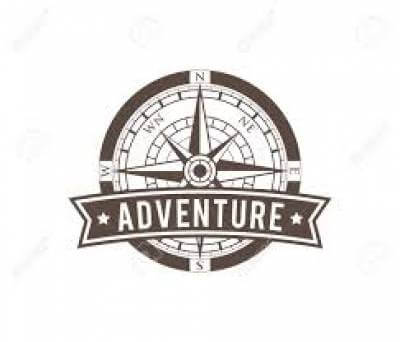Short Everest Base Camp Trek
The Short Everest Base Camp Trek is one of the most iconic and rewarding trekking experiences in the world. As the most popular among the 12 major trekking routes in Nepal, the Everest Base Camp Trek attracts thousands of adventurers each year. This condensed itinerary offers the same stunning highlights of the classic route but in a shorter timeframe, perfect for those with limited days but unlimited passion for the Himalayas.
Following the legendary footsteps of Sir Edmund Hillary and Tenzing Norgay, who summited Mount Everest on May 29, 1953, this trek leads you to the legendary Everest Base Camp at an elevation of 5,364 meters. It's the starting point for mountaineers attempting the summit and a dream destination for trekkers from around the world. The Everest Base Camp Tour combines breathtaking alpine scenery, ancient Himalayan culture, and an unmatched sense of achievement.
This Everest Base Camp Hike begins with a scenic flight to Lukla, the gateway to the Khumbu region. The trail winds through lush forests, suspension bridges, and vibrant Sherpa villages like Namche Bazaar, known for its energy, mountain views, and cultural charm. Along the way, you'll encounter colorful prayer flags, Buddhist stupas, and sacred mani stones that offer spiritual depth to your journey.
A highlight of the Everest Base Camp Trek Itinerary is a visit to Tengboche Monastery, the largest in the region. Here, you'll witness monks performing daily rituals against the backdrop of towering peaks like Ama Dablam and Mount Everest itself. As you ascend higher into the Sagarmatha National Park, a UNESCO World Heritage Site, the trail offers incredible views of the Himalayas, abundant wildlife, and rich flora.
At the final stretch, you'll reach Kala Patthar (5,545 meters), the best viewpoint for panoramic views of Mount Everest, Nuptse, and Lhotse. It’s the moment every trekker dreams of — a heart-pounding, soul-stirring reward for all your effort.
A well-organized Everest Base Camp Trek package includes guides, porters, permits, accommodations, and meals, ensuring your adventure is both safe and memorable. Whether you're new to trekking or a seasoned hiker, the Short Everest Base Camp Trek offers an experience that blends challenge, beauty, and cultural discovery — creating memories that will last a lifetime.
ITINERARY
Day 1 : Fly from Kathmandu to Lukla and trek to Phakding (2,652m/8,700ft) Duration: 5-6 hours.
Our trekking adventure begins after we land at Tenzing Hillary Airport at Lukla and then follow the trail to Phakding. The trail passes through Chaurikharka Village before heading up to Dudh Koshi Ghat (2,530m/8,300ft), then on to Phakding. At Phakding we will visit the local Rimishung Monastery.
Day 2 : Trek from Phakding to Namche Bazaar (3,440m/11,283ft) Duration: 5-6 hours.
This morning we follow the trail along the banks of the Dudh Kosi River until we arrive at the tiny village of Jorsale in the Khumbu region – just to the south of Namche Bazaar. After a further two hour trek, we arrive at Namche Bazaar. Along the trail, you will have some impressive views of Mt. Everest (Sagamartha in Nepali). We formally enter the Sagarmatha National Park at Jorsale where authorities will ask for your trekking permit. After another 5 or 6 hours of physically hard trekking, we get to Namche Bazaar.
Day 3 : Exploration and Acclimatization day at Namche.
An altitude of over 3,000 meters requires time out to acclimatize before climbing higher. To properly acclimatize to the thinning air and shortage of oxygen it is necessary to remain active. To better acclimatize we either visit the nearby villages like Khunde and Khumjung and explore the monasteries or trek up to the old Sherpa Village of Thame. These villages reveal the culture, architecture, and lifestyle of traditional Sherpas. We can also visit the museum, National Park Headquarters, or simply enjoy the internet services, bakeries, and cafes in this thriving town.
Day 4 : Trek from Namche Bazaar to Tengboche (3,867m/12,684ft) Duration: 5-6 hours.
On the trail to Tengboche, we have wonderful mountain views of Ama Dablam, Lhotse Shar, Taboche, Khangtega, and Thamserku peaks. Further along the trail, we come to the army checkpoint at Phunke Tenga Village. The afternoon is free and will allow us to visit the Buddhist monastery at Tengboche. We can also take a trail up a steep hill to the Sagamartha National Park Headquarters. There is also a Buddhist monastery here at Pangboche that is worth a visit.
Day 5 : Trek from Tengboche to Dingboche (4,358m/14,295ft) Duration: 4-5 hours.
Today’s trek from Tengboche to Dingboche is only a short distance which will see us arrive at Dingboche in the afternoon. The last hill before coming to Dingboche, and at this high altitude, is physically challenging! The trail then continues on to the village of Somare (4020m) and then to Orsho. Later the trail divides, with the left trail leading to Pheriche. We then cross a suspension bridge and have that steep climb to Dingboche (4460m) where there are many good guesthouses to choose from.
Day 6 : Trek from Dingboche to Lobuche (4,928/16,164ft) Duration: 5-6 hours.
This morning we have an easy walk towards Thukla before crossing the steep terminal moraine of the Khumbu Glacier, and then we trek across the large rocky slopes as we ascend to Chupki Lhara where we find clusters of stones with prayer flags placed by Sherpas as a monument to Scott Fischer (American mountaineer), 10-time Everest summiteer Babu Chiri Sherpa (Nepalese Sherpa mountain guide) who died while attempting to climb Mt. Everest. The path then continues on to the Khumbu Glacier moraine and from where we have some fantastic views of several mountain peaks: Khumbutse, Lingtren, and Mahalangur Himal.
Day 7 : Trek from Lobuche to Gorak Shep & hike to Everest Base Camp (5,364m/17,490ft) Duration: 7-8 hours.
This morning we hit the trail and continue to Mt. Everest Base Camp through the immense Gorak-Shep. On the trail, we pass the Indian army mountaineers' memorials. The thin air at this high altitude can be tiring which necessitates us moving at a slower pace. We cross rocky dunes, moraines, and streams before arriving at EBC. From here you will see some of the world’s highest snow-covered peaks that stand in stark contrast to the gray and rocky surroundings. Before we are Khumbutse, Nuptse, and Pumori. We will then head back to Gorak Shep for a well deserved night’s rest at Gorak Shep.
Day 8 : Hike up to Kala Patthar (5,550m/18,204ft) and trek to Pheriche ( 4,358m/14,295ft) Duration: 7-8 hours.
The early morning trek up to Kalapathar (5550m) is a memorable experience as we watch the sun rises and how it reflects off the snow-covered peaks of Mt. Everest, Lhotse, Nuptse, and other similarly glorious mountains. We then head back down to Dingboche (via Lobuche) before arriving at Pheriche.
Day 9 : Trek from Pheriche to Namche Bazaar (3,440m/11,283ft) Duration: 7-8 hours.
This morning we head downhill, somewhat easier and less tiring as we head to Debouche and Tengboche before arriving at Phunke Tenga. Further downhill we come to the Dudh Koshi River where we cross the suspension bridge and follow the trail heading to Namche Bazaar. At Namche Bazaar we can see the conspicuous snow-capped peaks of Ama Dablam, Thamserku, Tawache, and Lhotse.
Day 10 : Trek from Namche Bazaar to Lukla (2,652m/8,700ft) Duration: 7-8 hours.
On our last day on the trail, we head to the Monju Village following the same trail we previously took from Lukla via Phakding. On the trail, we have wide-ranging views down into the valleys that are mostly inhabited by Sherpa people. On our arrival at Lukla, we have some free time where we can stroll around the village. In the evening we will have dinner with our guides to celebrate the successful conclusion of our trek to EBC trek.
Day 11 : Fly from Lukla to Kathmandu and transfer to hotel.
This morning we take a 30 to 40-minute scenic flight back to Kathmandu, looking down with a new appreciation and reminder of our trek through the vast Himalayan Mountains. At Kathmandu, we will take you back to your hotel in Thamel where you can relax and look back on your journey to EBC. You will find many cafes and places to unwind. You may decide to wander around the winding and narrow streets to do some last-minute shopping before your departure from Nepal.
SERVICES
Cost Included In Your Package
- Domestic Airport Transfer: Private vehicle transfers on arrival and departure to and from the airport in Kathmandu are included in your package.
- Meals During the Trek: You will enjoy three meals a day (breakfast, lunch, and dinner) during the trek, with a variety of options catering to both local and international tastes.
- Experienced Guide: A highly experienced, government-licensed, English-speaking local Sherpa guide will accompany you throughout the trek. Their package includes their meals, accommodation, flight, insurance, and necessary trekking equipment.
- Sherpa Porters: Our team of strong and helpful Sherpa porters will assist with carrying your luggage. Each porter will support two trekkers and is provided with proper safety and walking equipment, along with their salary, food, accommodation, and insurance.
- Trekking Permits: All necessary documents for the trek are included, such as the Sagarmatha National Park Fees and TIMS (Trekking Information Management System) card.
- Accommodation: You’ll be staying in trekking lodges or teahouses along the route, providing basic but comfortable accommodations during your journey.
- Assistant Guide: For groups of 8 or more participants, an additional assistant guide will be provided to ensure that everyone’s needs are met and the group stays together.
- Trekking Gear: We provide essential trekking equipment for your journey, including a sleeping bag, down jacket, duffel bag, and walking poles (to be returned at the end of the trip). If you don't have your own, these will be available for you to use during the trek.
- Round Trip Flights: Round-trip flights between Kathmandu and Lukla, including applicable departure taxes, are included. Lukla’s airport is the starting point for your trek.
- Seasonal Fresh Fruits: Enjoy seasonal fresh fruits served every evening after dinner, adding a refreshing and healthy touch to your daily meals.
- Certificate of Appreciation: Upon successful completion of your trek, you will receive a Sherpa Teams Certificate of Appreciation as a memento of your achievement.
- Complimentary T-shirt: Sherpa Teams will provide you with a free hiking T-shirt to commemorate your trek.
- Oximeter: For your safety, we provide an oximeter to monitor your oxygen and pulse levels throughout the trek. This is a helpful tool for ensuring you are aware of your condition and can prevent altitude sickness.
- Emergency Rescue Assistance: In the case of serious health conditions, we will assist with emergency rescue arrangements, funded by your travel insurance.
- Taxes and Official Expenses: All government, local taxes, and official expenses related to your trek are included in your package.
Cost Excludes
- Nepal Entry Visa Fee: The visa can be easily obtained upon arrival at Tribhuvan International Airport in Kathmandu. The fees are as follows:
- USD 30 for a 15-day visa
- $USD 50for a 30-day visa
- $1USD 125or a 90-day visa
- Hotel Accommodation in Kathmandu: Accommodation in Kathmandu before and after the trek is not included in the package. We recommend booking a hotel in advance if necessary.
- Extra Nights Accommodation and Meals: If you need additional nights of accommodation or meals before or after the trek, these costs will be your responsibility.
- International Airfare: Flights to and from Nepal are not included. You are responsible for booking your international flight to Kathmandu.
- Beverages and Extra Food on the Trek: All alcoholic and non-alcoholic drinks, such as tea, coffee, hot chocolate, cocoa, mineral water, and other cold and hot drinks purchased along the way, as well as extra meals outside the standard itinerary, are not covered by the package.
- Travel Insurance: Travel insurance is not included. You are required to obtain insurance that covers emergency high-altitude rescue and evacuation in the case of illness or injury.
- Personal Clothing and Trekking Equipment: Any personal gear, clothing, or trekking equipment needed for the journey (e.g., boots, jackets, sleeping bags, etc.) is not included in the package.
- Additional Costs Due to Itinerary Changes or Delays: Any additional costs incurred due to weather conditions, illness, strikes, changes in government policies, or unforeseen physical conditions that cause delays or modifications to the itinerary are not covered.
- Gratuities to Guides and Staff: While tips are not mandatory, they are appreciated as part of Nepali culture for guides and staff. It is recommended to show gratitude for their hard work and support during the trek.
- Other Expenses: Any other expenses not specifically mentioned in the “Price Inclusive” section of the program are your responsibility.
- Note: If you need to return early from the trek due to sickness or any other issue, the costs for your flight, hotel, meals, mountain accommodation, etc., will not be refunded. You will need to cover any additional expenses, including hotel stays and food, in Kathmandu independently.
EQUIPMENTS
The following information will give you some idea about what you need to bring for the trek. It is important you do not forget the essential items, as this will determine your comfort and safety on the trek. Equally important is that you do not burden yourself with unnecessary equipment on the trek.
- Sleeping Bag (Sherpa Teams will provide, but need to return after completing the trip)
- Duffel Bag (Sherpa Teams will provide,e but need to return after completing the trip)
- Fleece jacket or pullover
- Waterproof windbreaker or windcheater
- Thermal underclothes
- Rain poncho
- Down jacket (Sherpa Teams will provide, de but need to return after completing the trip)
- Fleece or wool trousers
- Sun hat or scarf
- Trekking pants (two pairs)
- Mittens or woolen gloves
- Hiking socks (several pairs)
- Moisture-wicking shirts, including t-shirts
- Trekking shoes or boots with spare laces
- Flip-flops or sandals for relaxing in the evenings
- Underwear (several pairs)
- Swimsuit or swimming costume
- Sunglasses
- Headlamp or flashlight/torch
- Sleeping bag (Sherpa Teams can provide this for you)
- Trekking poles (if desired)
- Hiking backpack with a capacity of at least 40 liters
- Small lock for your backpack
- Reusable water bottles (at least two liters)
- Water purification tablets or a filtration device
- Wash towel
- Basic first aid kit
Toiletries (tissues, toilet paper, moisturizer, lip balm, sunscreen, sanitary pads, hand sanitizer, nail clippers, a small mirror, toothbrush, toothpaste, glasses, contacts, etc.)
GOOD TO KNOW
🏞️ Trek Difficulty and Fitness Level
The Everest Base Camp hike is physically intense, with daily ascents and a long hours of hiking. That’s possible with appropriate acclimatization, but it’s still recommended that you are fit enough to enjoy the challenge of the trek. Anything that gets your heart pumping, like hiking or walking, will prepare your body for high altitude.
🌄 Altitude & Acclimatization
The trek reaches an altitude of 5,364 meters at Everest Base Camp, so gradual acclimatization is essential. You’ll spend time on the trail to allow your body to acclimate to the thinning air. Your guide will advise you on steps to take to prevent altitude sickness, which can hit even the most seasoned trekkers.
🏕️ Accommodation & Meals
You'll be staying at local teahouses along the trail that provide basic but comfortable accommodations. Meals are generous and include local specialties such as dal bhat (lentil soup), momo (dumplings), and several Western dishes. The food may be basic, but it’s wholesome and designed to keep trekkers going.
🧑⚕️ Safety & Support
We’re doing everything we can to keep you safe. Your Sherpa team, who is your companion in the expedition, has more than 40 years of experience in trekking and climbing. They’ll make sure you’re going at the correct pace, that you’re taking time to acclimatize, and taking care of any issues that come up. In addition, guides and porters know what to do in case of an emergency, meaning you’re in good hands for the duration of the trek.
🧳 Packing Essentials
Drooifor packing is key for comfort and safety during the trek. PhotoGray Hall Essential gear such as a quality sleeping bag, warm clothes, durable hiking shoes, a raincoat, and a headlamp. Bring your camera — you’ll want to photograph the breathtaking scenery along the way. A good quality water bottle and sunscreen are also essential to staying hydrated and protected from the burning rays of the sun at altitude.
✈️ Flight to Lukla
The trek starts and finishes in Lukla, a small mountain town, which can be reached by a brief but hair-raising flight from Kathmandu. These flights are included in the trek package, and although weather sometimes delays flights, it’s all part of the adventure.
🧘♂️ Cultural Insights
This is a great trek to experience Sherpa culture. You’ll walk through villages, visit Buddhist monasteries like Tengboche, and see customs and traditions that have been handed down for hundreds of years. It’s a trek not only into the mountains, but one into the heart of Nepal’s spiritual heritage.
So with these important tips in mind, you will be ready for your epic journey to Everest Base Camp.
MAP
PHOTOS/Videos
Departures
Select a departure month
Fill out the form below and a Travel Expert will reach out to create your perfect tour.
FAQS
I have never hike before, can I make it to Everest Base Camp?
Yes, you can. No matter who you are, as long as you are reasonably fit, can walk for 5-6 hours a day and trek/hike a few uphills, Sherpa Expedition and Trekking Trekking team will support you to the fullest to transform your dream of standing at Everest Base Camp into reality.
What is the best Season for trek to Everest Base Camp?
The month of March to May in Spring and September to December in autumn seasons are considered the best for the Everest Base Camp Trek as the weather conditions become favorable during this time, providing you with good visibility and a suitable atmosphere for Everest Base Camp trekking.
Is there an age limit for Everest Base Camp trekking?
No, there is no age limit for the trek to Everest Base Camp but, you need to be in good physical shape and have a positive attitude. We also suggest you to prior to the excursion though we suggest you to please see your doctor and obtain necessary permission and advice, as well as medications for traveling in extreme altitude prior to the excursion.
What are the meals on the Everest Base Camp trekking like?
During trekking, you will be served meals in the teahouses. Typical meals are noodles, rice, pasta or potato dishes along with vegetables and egg/chicken/meat dishes. Other items mostly served as breakfasts include Tibetan, egg, pancake, bread, porridge, muesli, and toasts with peanut butter and honey.
What kind of accommodation will be provided during the Everest Base Camp trekking?
A teahouse trekking accommodation will be made for you for the Everest Base Camp trekking whereby you will be able to stay at tea house(Local lodge) and have wholesome food and net and clean comfortable bed throughout your trekking journey. This form of arrangement also allows you to carry less baggage; you can trek at your own pace and enjoy the Everest panorama on your own schedule. It is also an eco-friendly way of trekking whereby trekkers can have more contact with the local's sherpa peoples.
Are there toilet facilities at the tea houses? What opportunities will I have for shower during trekking?
Most of the teahouses on the Everest Base camp trail have squat toilet facilities but recently built lodges have western-style toilets as well. Nowadays, flush toilets are also being introduced with number of increasing foreign mountaineers each year. It is highly recommended to carry your own toilet paper and other required toiletries. Hot shower facilities are available till Gorakshep. The most common type is a bucket shower, usual buckets with tap filled with hot water and placed in a shower room. Hot shower costs from US$ 4 to 15 per use and the price increases along with the elevation. Attached bathrooms and toilets are not available unless you book for a luxury lodge during the EBC trek.
What kind of clothes do we require for the trekking and is it possible to purchase it in Kathmandu before the start of the trip?
What you want to wear depends on you but we suggest you wear warm clothes during the Everest Base Camp trekking. A down jacket, thermal longs and top, comfortable trekking trousers, t-shirts, fleece, windproof jacket, hat, scarf, and gloves might be useful. There are numerous trekking shops in the Thamel area of Kathmandu where you can get all of these items in both local and branded stores alike. Sherpa Expedition and Trekking may also accompany and assist you if required.
Do I need to bring any bags for trekking? If yes, what kind?
During the Everest Base Camp trekking, you will be on a long journey for which you will need two bags to keep your belongings. A rucksack/duffle bag and a day bag for personal items. Sherpa Expedition and Trekking will provide you with a duffle bag (which is need to refund after the trek) that you can use throughout your entire journey and even afterward. These bags are durable and hence perfect for any kind of trekking journey. While the duffle bag will be carried by the potters, you will have to carry a day bag on your own. A day bag is a small backpack that has enough room for everything you will need on a day hike such as lunch, water, extra clothing and perhaps a few personnel items like camera, battery chargers, etc.
Do I need to bring any personal equipment like sleeping bags, down jackets, Trekking poles etc?
If possible, we suggest you bring your own equipment. However, sleeping bags and down jackets will be provided to you by Sherpa Expedition and Trekking. With regards to trekking poles, if you are used to walking with it then take them with you, as you will probably find them useful especially on the way down. They are not essential though and the walk is manageable without them. It is mostly a personal preference. If you prefer to take the trekking poles with you on the trekking then you can either bring your own pole or buy it from numerous options available in Kathmandu itself.
Is it possible for me to store extra clothing that I will not need?
Yes, if you have a bag of extra clothing for when you return from the trekking, you will be able to store it safely in Kathmandu Sherpa Expedition and Trekking office. The storage facility is provided by most hotels and lodges in Kathmandu or you can also store it in our office for the duration of the trekking.
What problems can arise on high altitude?
Our itinerary has been specially tailored to prevent any kind of AMS (Acute Mountain Sickness) while moving up to higher altitudes. Normally, altitude sickness starts from 3,600 meters and above. You will be trekking at a relatively slow and gradual pace as part of the acclimatization process. Cut off caffeinated, alcoholic and smoking items. Drink at least 4 liters of water a day. Trek slow. Don't skip the acclimatization days. Better to continue with Diamox (if any symptoms show up). Drink Garlic Soup. In the higher elevation, there is less oxygen in the air and this is more so while crossing high passes. Our expert guides will advise you on how to avoid AMS and treat it when/ if required.
Do I need insurance for Everest Base Camp trekking?
Make sure to have both medical and evacuation insurance before coming to Nepal for Everest Base Camp trekking. You should be careful in choosing a policy while traveling to a Himalayan country like Nepal as some insurance companies may make special exceptions for adventure travel. If you are confused about the insurance, please inform us and we will help you. It is usually better to arrange your insurance in your country before travel.
How long do I need to walk per day during my trek to Everest Base Camp?
The trekking will be 5-7 hours a day depending upon the landscape and destination.
How long will it take to reach Everest Base Camp?
It takes 6 to 14 days to reach Base Camp depending upon the mode of transportation and packages of Sherpa Expedition and Trekking offers.
How safe is Everest Base Camp trekking?
We at Sherpa Expedition and Trekking Team always have the safety, comfort, and satisfaction of our valued customers as our foremost priority at all times, and we assure you a wonderful and unforgettable time with us in our beautiful country. Sherpa team members of Sherpa Expedition and Trekking will be carrying all the necessary gear, equipment, and first aid kits and they have extensive first aid training. If a trekker falls sick on high altitude, the leader will decide whether to continue the trek. In case of emergency, Sherpa Expedition and Trekking have a rescue helicopter to bring you back from the higher elevation. Moreover, Sherpa Expedition and Trekking also provides oximeter to monitor the oxygen level at high altitude and offers regular health check-up facilities.
What are the mode of transportation?
You can either trek on foot or by a helicopter. Sherpa Expedition and Trekking offer exciting and reasonable Helicopter trek to Everest Base Camp for 5 days and 10 days. Sherpa Expedition and Trekking can also customize your tour as per your necessity.
What if my flight to and from Lukla is cancelled or delayed?
The flights are usually regular between September and May. But due to high altitude, bad weather and unforeseen technical issues, you may experience a delay or cancellation of the flight. On the occurrence of such events, Sherpa Expedition and Trekking charter a helicopter to make sure you are on the safe schedule either for a trek or for your flight back home which would cost extra charge as an unexpected event. However, if the visibility is less than 1,500 meters, it is unable to operate helicopter facilities and Sherpa Expedition and Trekking will reschedule the flight.
What is the luggage limit for porter and flight to Lukla?
Sherpa Expedition and Trekking will provide one porter for two trekkers to carry 20 kgs of luggage (maximum 10 kg for each trekker). Please be sure your porters are not overloaded because they do not carry only your equipment but also lift your spirit to reach new heights, and your love, affection, and generosity can be the reason for them to work hard to take you to your destination. However, the weight limit on flights to the Everest region, basically to Lukla is a total of 10 kgs and you need to pay an extra amount per kg for the excess baggage. Sherpa Expedition and Trekking pays up to 5 kgs of extra baggage making your total to 15 kgs with your hand bag.
What types of liquid do I need to drink at high altitude?
Garlic soup is a must while trekking. Sherpa Expedition and Trekking recommend trekkers to drink green tea, lemon tea, hot lemon ginger tea and drink at least 2-4 liters of water a day. However, it is better to avoid alcohol and alcoholic beverages, caffeinated items, and hot-chocolates at high altitude.
I am a vegetarian. Am I supposed to get enough meal on my trek?
Sherpa Expedition and Trekking Trekking won’t recommend non-veg items because the meat in such places may not hygienic and healthy. Sherpa Expedition and Trekking also encourage to avoid dairy and cheesy items and strongly suggest not to consume them during the trek. So, our packages are suitable for both vegan and vegetarians.
Do I need to tip my porter and guide?
Your guide and porters are a big reason why you got a chance to feel something very few can have. Apart from guiding and carrying your necessities and being mindful of your safety, they want to see you happily succeeded more than anyone like family and help you successfully complete the trek safely. So, your tips reflect gratitude towards them. So, tipping is a recommended culture for porters and guide in Nepal as a gesture of thankfulness.
Can I buy the gear in Nepal and sell it afterwards?
Sherpa Expedition and Trekking will introduce dozens of shops selling knock-off gear in Kathmandu. You can also barter those gears at the knock-off places but be sure you keep the receipt safely. Moreover, you can rent the needed gears if you do not want to buy them.
Is there Wi-Fi on the trek?
Yes, most guesthouses offer Wi-Fi, for a small charge. it cost USD$5 per day.
Are there ATMs available during the Everest Base Camp trekking?
ATM services are available only in Namche Bazaar and Lukla. However, the services might not work or run out of cash. Therefore, we suggest you carry a small amount of money to buy snacks, etc during the trekking.
Will I be able to charge my batteries during trekking in the Everest Base camp?
Most of the tea houses/ lodges have electricity whereby you will be able to charge your iPod or camera batteries. Please note that lodges/tea houses will charge you some extra money for the services. The fee may vary from 1 USD to 3 USD per hour.
Latest Traveller’s Reviews
Travel experiences of our clients who recently returned from their trips.
100%
Based On 40 Reviews
Juliana Almeida
Australia
July 21, 2024
Fantastic Support
Dorje Sherpa offered fantastic support throughout our Everest Base Camp trek. His extensive knowledge of the region and meticulous planning ensured that we were well-prepared for each leg of the journey. Dorje’s ability to handle logistics and provide insightful commentary on the local culture and environment added significant value to our experience. His supportive and encouraging attitude, especially during challenging sections, kept us motivated and confident. With Dorje’s expert guidance, reaching Everest Base Camp was a rewarding and memorable achievement.
Hannah Nyakio
United Kingdom
July 13, 2024
Incredible Journey
Dorje Sherpa led our Everest Base Camp trek with incredible skill and care. His deep knowledge of the region and meticulous planning made the trek comfortable and efficient. Dorje’s ability to address altitude issues and provide valuable insights into the local culture enhanced our experience. His supportive and positive attitude, especially during challenging parts of the trek, kept us motivated. Dorje’s dedication to ensuring a safe and enjoyable journey was evident throughout, making our trek to Everest Base Camp a truly memorable adventure.
Olu Nicholas
Denmark
July 8, 2024
Remarkable Guidance
Karma Sherpa offered remarkable guidance throughout our Everest Base Camp trek. His expert knowledge of the region and thorough preparation ensured that we were well-equipped for each stage of the journey. Karma’s insightful explanations about the local environment and culture enriched our trek. His supportive and encouraging attitude, especially during the more demanding parts of the trek, kept us motivated. Karma’s ability to handle challenges with ease and his constant attention to our needs made our trek a fantastic adventure.
People Considering This Package Right Now Check availability


























